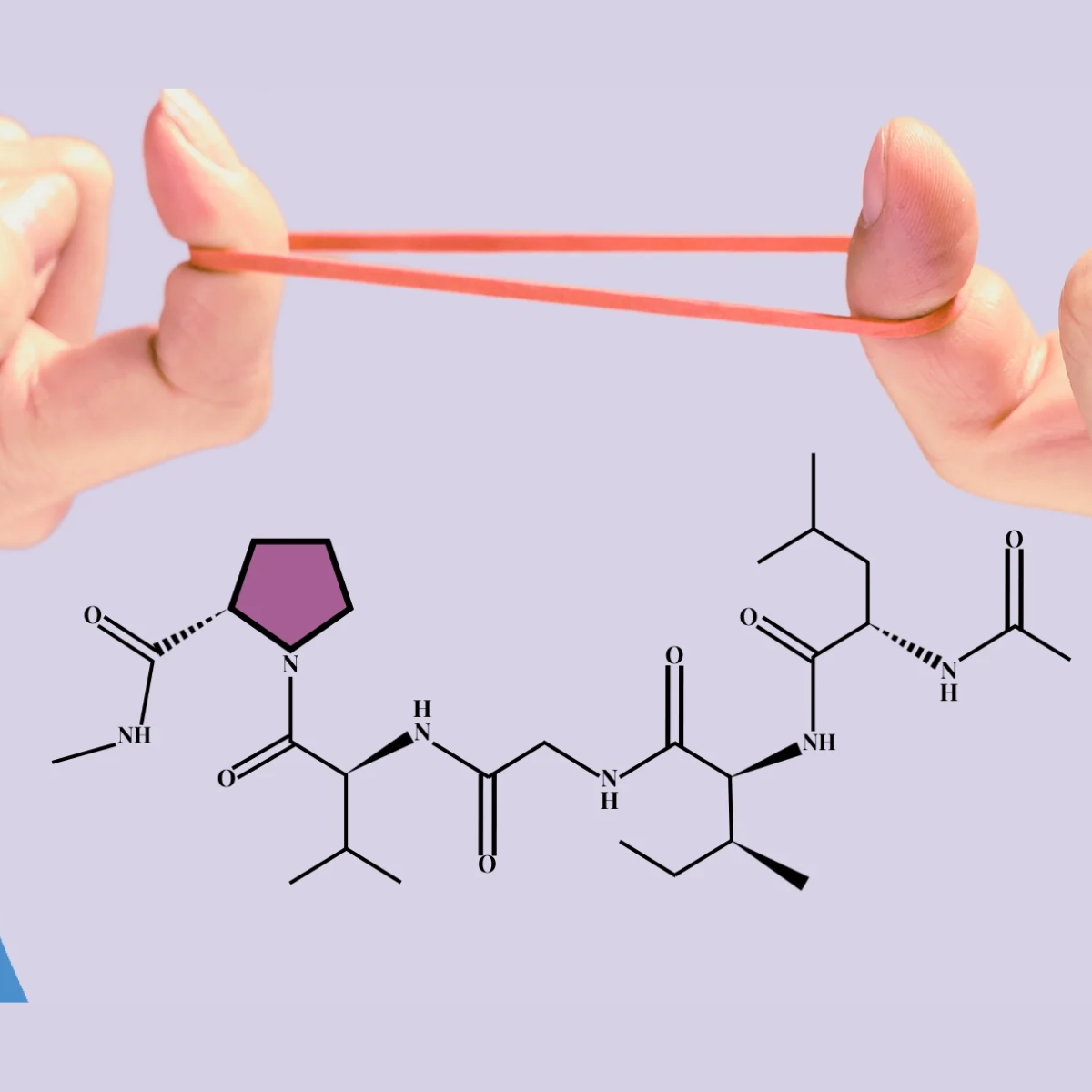Elastin | What Is It?
What Is Elastin?
Elastin is one of the most abundant proteins in your body; it is a stretchy protein that resembles a rubber band. Elastin can stretch out/extend and shrink back/recoil; it is a major component of tissues in your body that require stretchiness. Similar to your lungs, bladder, large blood vessels, and some ligaments. Smaller amounts exist in your skin and ear cartilage. Elastin is produced by many molecules of a large, flexible molecule called tropoelastin join together to form elastin.
Is Elastin A Collagen?
Elastin is not a collagen, however, elastin and collagen are both proteins that get confused with each other. Collagen's main role is to provide structure, strength, and support in your body. Elastin's main role is to provide stretchiness in your body and is more stretchy than collagen.
What Is Elastin's Function?
Elastin's main function is to allow tissues in your body to stretch out and shrink back. Elastin gives your arteries stretchy characteristics that make it easier for your heart to pump blood. It allows your lungs to work like an elastic bag; when you breathe in, your diaphragm contracts. Your lungs create potential energy as they contract, and the elastic tissues in your lungs store that potential energy. When you breathe out, the potential energy in your lungs is released as your lungs shrink back.
As we age, elastin in your skin decreases. Elastin allows you to stretch your skin and if you have a lot of elastin in your skin, the skin on the back of your hand will shrink back into place quickly once you stop pinching it. If you don't have a lot of elastin in your skin, it can take several seconds for your skin to shrink back into place.
Where Is Elastin Found?
Elastin is in the dermis layer of your skin, lungs, blood vessels, ligaments, ear cartilage, and other body parts that require elasticity. Elastin is the primary component of the elastic fibers in your body.
What Is Elastin Made Of?
The main amino acids that make up elastin are proline, glycine, desmosine, and isodesmosine. They are grouped in short, repeated sequences of three to nine amino acids which create strong and flexible structures.

What Are Common Conditions & Disorders That Affect Elastin?
Some conditions that affect elastin include:
Atherosclerosis: This is a disease where plaque build up inside of your arteries which causes your arteries to narrow and can lead to blood clots, a heart attack, or a stroke. Studies have shown that atherosclerosis have noted a decrease in native elastin in arteries
Cutis Laxa: This is a disease where your skin lacks elasticity, so it may appear loos or wrinkly, and very slowly returns to its place.
Emphysema: This is a lung disease that typically develops after years of smoking. The elastin in your lungs break down and you may have symptoms including shortness of breath, a cough, wheezing, fatigue, and long term mucus production.
Supravalvular Aortic Stenosis: This is a heart defect that develops before birth and causes your aorta to narrow.
Williams Syndrome: This is a rare developmental disorder that is caused by the deletion of the gene for elastin and the enzyme LIM kinase.
What Are Common Treatments For Elastin Conditions?
A combination of treatments may help boost elastin and collagen production in your skin including Venus Viva which is a skin resurfacing treatment where tiny, heated needles create small wounds in your dermis. Another treatment is Retinoids to help boost your skin's metabolism, which increases collagen and elastin production.
Ways To Keep Your Elastin Healthy
Along with collagen, elastin will help keep your skin firm and stretchy. Tips that can help you maintain or increase the amount of elastin in your skin include applying sunscreen, eat healthy foods, establish a skin care routine, exercise, and quit smoking.
Can Supplements Help Increase The Amount Of Elastin In Your Skin?
Herbal supplements like aloe vera, green tea, and ginseng may help increase the amount of elastin in your skin.
Conclusion
Elastin is a protein that your body produces naturally; it can provide strength and elasticity to your skin and many other organs. Supplements can help increase the amount of elastin in your skin. You can also help your body produce more elastin naturally by eating a well balanced diet that includes greens, citrus fruits, fish, berries, and nuts. You can also maintain elastin in your body by exercising, establishing a proper skin care routine, quitting smoking, and wearing sunscreen everyday.







